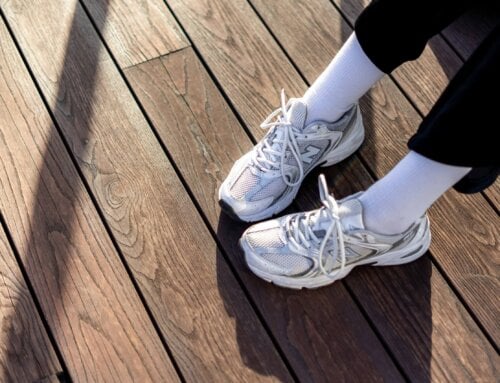Exercise is an important part of your treatment plan when you have diabetes type 1. Exercise can make it easier to control your blood glucose levels and weight. Get some great exercise advice when you have type 1 diabetes.
- Exercise increases insulin sensitivity which is a major benefit for people with type 1 diabetes. After exercising, your body may not need as much insulin to process carbohydrates. Test your blood sugar regularly to see the impact exercise and certain foods have on your glucose levels.
- It is beneficial to encourage children and teens with type 1 diabetes to exercise regularly. This helps them manage diabetes and develop healthy habits from an early age. Children should have at least 1 hour of physical activity daily, which can include playing and walking. If your child is in organized sports always let the coach know your child has diabetes type 1 and how to respond if a problem arises. Make sure your child wears a medical identification bracelet in case of emergencies as well as being prepared with glucose tablets, extra insulin, snacks, and a possible glucagon shot.
- Your blood glucose level should be checked before, during, and after physical activities. Consider having some added carbohydrates and extra fluids prior to engaging in sports or strenuous physical activity. Bring a prepared kit with supplies to the gym or anywhere else where you engage in physical activity.
- Consider the benefits of staying fit and active throughout your life. Exercising regularly can help prevent long-term complications associated with diabetes including cardiovascular problems and high cholesterol. Exercise can help keep your heart strong and raise your HDL or good cholesterol. It could help you maintain a healthy weight as well. It can also help lower blood pressure, give you more energy, and build stronger muscles and bones.
- Always talk to your doctor before starting any exercise routine. Have a complete physical and take into consideration any diabetes-related complications such as neuropathy or retinopathy. Your health care team will help you determine the best exercise program to get in shape without pushing yourself too far. Talk to your health care team about adjusting your insulin around exercise. Plan ahead to avoid becoming hypoglycemic during exercise.
- Set realistic goals when you start exercising. If you have been sedentary for months or years it takes time to build yourself up. Start with 10 or 15 minutes each day and slowly increase your physical activity. For example, begin by walking a few blocks and use an Omron pedometer to gauge your progress. Walk a little more each day to build your stamina and develop a challenging exercise routine.
- If possible, include three main types of exercise in your routine – strength training, aerobics, and flexibility exercises. Strength training includes weight training and resistance training, such as the use of resistance bands, push-ups, and pull-ups. Strength training should be done for a minimum of 20 minutes, 2-3 times per week. Aerobic exercises include jogging, walking, tennis, basketball, swimming, biking and Zumba classes. Try to build up to a minimum of 30 minutes of aerobics exercise, 5 days a week. This can be broken up into 10-minute segments throughout the day if you are pressed for time. Flexibility training includes simple stretches before and after exercise to relax muscles and reduce soreness. Yoga and Pilates are also great ways to become more flexible. If you have limited balance and strength, consider chair exercises by watching videos or taking your limbs thru circles or range of motion. Any movement helps you with insulin sensitivity and well being. Walk your dog or do some gardening. Many insurance plans now offer Silver Sneaker memberships to their senior members which allow for a free gym program. Take advantage since many facilities even have swimming pools which are perfect if you have arthritis, fibromyalgia, or balance issues.
With the help of your diabetes health care team you can find the right exercise routine to boost your overall health. Regular exercise can give you more energy and reduce the complications associated with type 1 diabetes. It can also help with depression. An added benefit is maintaining a healthy weight so you look and feel your best.













Leave A Comment